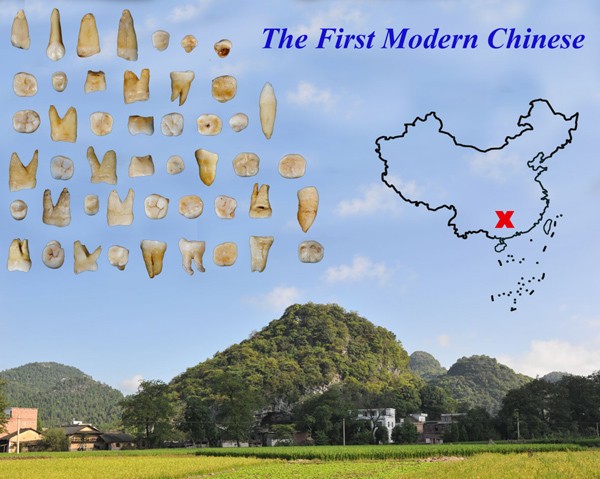In a report by China Daily, evidence in the form of 47 human teeth found in Hunan Province suggests that the earliest modern humans, also known as the species Homo sapiens, lived in East Asia.
Aside from human teeth, animal fossils were also excavated by Chinese scientists from Fuyuan Cave in Daoxian County between 2011 and 2013. The discovery was only released recently in the online version of Nature, a scientific journal.
Scientists were able to determine that the human teeth belonged to Homo sapiens, which lived some time between 80,000 and 120,000 years ago.
"The human teeth from China . . . open up a new window on an area we had little information on before," said Nick Campbell, Nature's executive director. "These fossils . . . are approximately double or more the age of any previous well-dated, well-preserved human fossils from southern Asia."
The appearance of humans in East Asia and the eastern region of the Mediterranean has always been subject to debate due to the lack of fossil evidence.
Despite the discovery of human fossils in several sites in China such as Huanglong Cave in Hubei Province and Zhiren Cave in the Guangxi Zhuang Autonomous Region, there was never any proof that these fossils belonged to fully evolved modern humans. That is, until the discovery of human teeth in Fuyuan Cave.
"This is a milestone discovery because the species we found in the Fuyuan Cave is from well-developed modern humans, almost identical to living humans," said Liu Wu from the Institute of Vertebrate Paleontology and Paleoanthropology at the Chinese Academy of Sciences. "This means that we were present in southern China 30,000 to 70,000 years earlier than in the eastern Mediterranean and Europe." Liu also writes as the lead author for Nature.
Campbell agrees that the discovery is a monumental one.
"The findings really do substantially change our understanding of how modern humans established themselves in Asia," he said. "The findings may have some intriguing implications for the ever-evolving story of how modern humans replaced Neanderthals."
Other anthropology experts from around the world look forward to more discoveries in southern China.



























